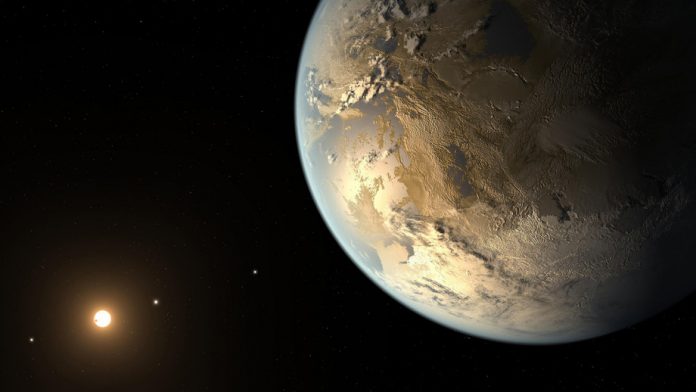
In a new study, scientists found that most planets discovered in other solar systems are unlikely to be as hospitable to life as Earth.
The study was conducted by scientists from the ANU Research School of Astronomy and Astrophysics
It is known that plants and animals would not survive without water on Earth.
Previous studies showed that the sheer strength of Earth’s magnetic field helps to maintain liquid water on our blue planet’s surface, thereby making it possible for life to thrive.
Researchers have detected hundreds of rocky exoplanets during the past decade.
The techniques for finding exoplanets the size of Earth are more likely to find slowly rotating planets locked to their host star in the same way the Moon is locked to Earth, with the same side always facing their host star.
To see if any other planets might be hospitable to life, the team compared Earth’s magnetic field to those of other potentially habitable planets.
They modeled the magnetic fields of exoplanets, which are planets beyond our solar system. They found very few have a magnetic field as strong as Earth.
The strong magnetic fields may be necessary to keep wet rocky exoplanets habitable.
They suggest Earth’s strong magnetic field had probably played an important role in protecting the atmosphere from the solar wind and keeping the planet wet and habitable.
For example, Venus and Mars have negligible magnetic fields and do not support life, but Earth’s magnetic field is relatively strong and does.
The findings suggest most detected exoplanets have very weak magnetic fields. It is an important factor when searching for potentially habitable planets.
The team suggests finding planets most likely to be wet and temperate will require ambitious but feasible space missions in the near future.
The lead author of the study is Ph.D. scholar Sarah McIntyre.
The study is published online in the journal Monthly Notices of the Royal Astronomical Society.
Copyright © 2019 Knowridge Science Report. All rights reserved.



